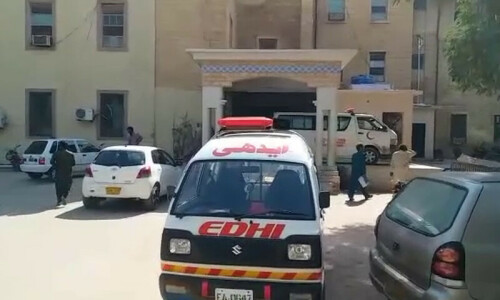ISLAMABAD: The United States and the international community should use diplomatic, intelligence and military channels to ensure Pakistan and Afghanistan never supported anti-state actors against each other.
This was recommended in a report, “Wake up Pakistan” prepared by the Country Foundation International Working Group on Pakistan. The launching ceremony of the report was organised by the Centre for Research and Security Studies at a local restaurant on Tuesday.
The report recommended that the uncertainty around the development of conventional military forces by India and Pakistan should be reduced. Moreover, the international community should encourage both the countries to finalise the nearly negotiated 2014 framework for preferential trade access (most favoured nation status).
It also recommended that the international community, especially the US, the EU and China, with the cooperation of multilateral institutions such as the World Bank and Asian Development Bank, should create a power institute in South Asia to ensure affordable energy measures in the region.
The government of Pakistan was also recommended to support the efforts of the Afghan unity government about reconciliation with the Taliban. It was stated that the offensive against the TTP cannot succeed without addressing the feeling of alienation among the people of Fata. The government of Pakistan should introduce reforms to normalise the legal status of Fata.
Report says Islamabad should support Afghan unity govt’s efforts for reconciliation with Taliban
The supremacy of the civilian policy leadership over the military needs to be reasserted through the work of the Cabinet Committee on National Security and the National Security Division, it added.
Moreover, it was recommended that Pakistan needed to develop an aggressive and strategic energy policy that can meet immediate needs in an affordable manner and ensure long-term sustainability of energy availability.
Speaking on the occasion, former US secretary of state for political affairs and chairman International Working Group Thomas Pickering said a country cannot prosper without a strong economy and the means to combat emerging challenges. He also spoke about various issues addressed by the report, including education, peace and access to justice.
Former foreign secretary Riaz Khokhar said there was hardly any debate in the media about economic analysis which the report provided and shed some light on the role of China as a major player in the region.
Former Swedish ambassador to Pakistan and Afghanistan Ann Wilkens spoke about conflict drivers in Pakistan. She said the economic inequality was the biggest divider in Pakistan. She also stressed that the denial of education for children was a major long-term conflict driver.
Senior journalist Najam Sethi said he was deeply concerned about violent extremism and national security issues in Pakistan but expressed the hope that Pakistan was finally becoming cognizant of its problems.
Former US ambassador Cameron Munter said improving bilateral dialogue between Pakistan and India was necessary to tackle issues faced by the two countries. He said no issue had a single solution, and that all avenues must be explored and exhausted in the pursuit of peace in the region.
Author and journalist Ahmad Rashid said there was a dire need for economic reform for stability, as Pakistan was dead last in the region in terms of tax collection, trade reforms, privatization and exports.
Published in Dawn, May 20th, 2015
On a mobile phone? Get the Dawn Mobile App: Apple Store | Google Play












































Dear visitor, the comments section is undergoing an overhaul and will return soon.